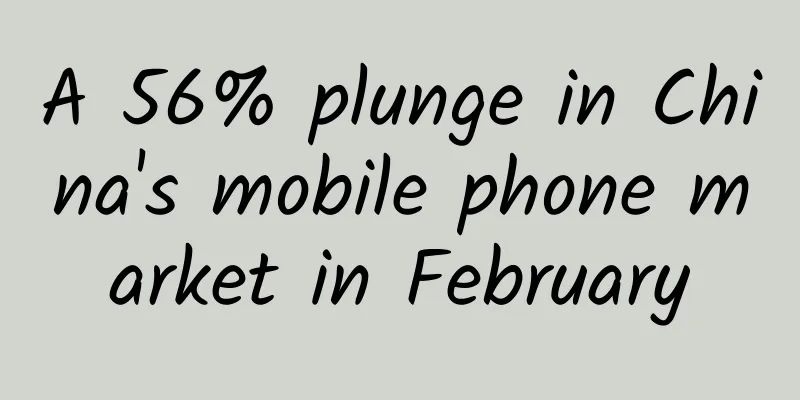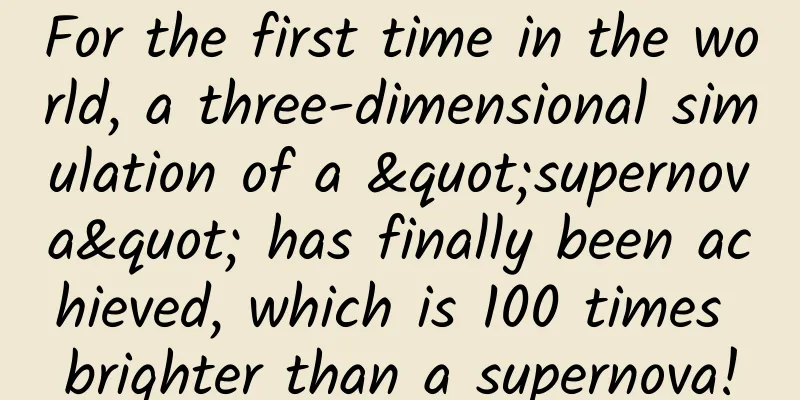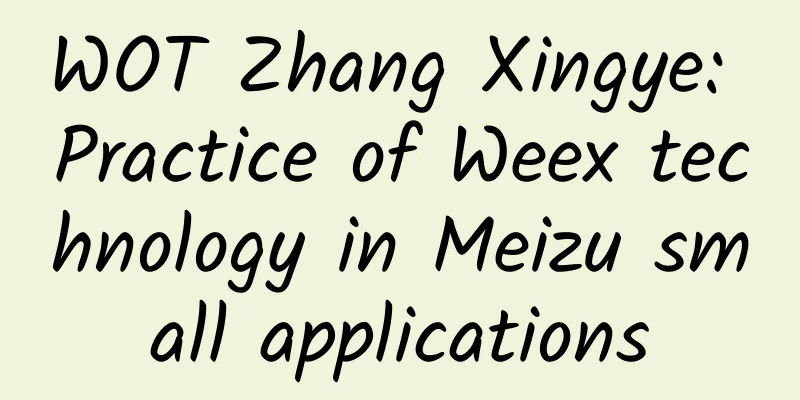"Happy family" or "Happy family", is it really true that you can't make the mistake in using them when greeting the new year?

|
Author: Cleaner, PhD student in Exegesis at Nankai University Reviewer: Wang Hongzhi, Associate Professor, School of Humanities, Shanghai Normal University gossip As the Spring Festival approaches, it is time to post couplets and send blessings. When sending a New Year's greeting text message, some people will say "happy family" and some will say "happy family". But some "particularly serious" friends will emphasize that there is a difference between "happy family" and "happy family". When blessing others, if you make a mistake, you will make a fool of yourself. Is this true? Copyrighted stock images, no reproduction is authorized analyze In fact, it is not just "family happiness" and "family happiness" that are controversial. When giving gifts to a person, some people carry a basket of "oranges" while others carry a bag of "mandarins"; when entertaining guests, some people rush to "pay the bill" while others want to "pay the bill"... Are you worried about being embarrassed by making a typo? Which of these writing methods is correct and which is wrong? Family-family planning-role planning-role payment-payment dice-dice Don’t worry, everyone’s answer is correct! Hey, we don't even know which character you chose, how can you say you chose the right one? This is because the above writing is generally correct. Today we will analyze these common characters together. Confusion of pronunciations: "合家" and "合家" "He" was originally a derivative of "He". Da Xu's "Shuowen Jiezi·Jibu": "[He] means closing the mouth." Let's look at Da Xu's "Shuowen Jiezi·Menbu": "[He] means a door leaf. Another saying is: closing." In short, "He" means to shut the mouth, and "He" means to close the door. Do you think they match? In fact, their ancient pronunciations are very similar (technically called "Jihe side turn"), so experts think that this is a group of "similar pronunciations and similar meanings" cognate derivatives. [ Wang Li, "Cognates Dictionary", Commercial Press, 1982, pp. 589, 590. ] Derived from the meaning of "close", "合" and "闭" respectively have the meaning of "whole". In Volume 10 of "Qi Ming Yao Shu" by Jia Sixie of the Northern Wei Dynasty, it is quoted from "Guangzhou Ji" by Pei Yuan of the Jin Dynasty that the small oranges in Luofu Mountain are magical. They are sour when eaten with the skin peeled, but they are particularly sweet when eaten with the skin intact (the original text calls it "合食"). In "Zhuangzi·Wai Pian·Qie Xie", it is mentioned that "the whole Qi State" is also called "合四竟內". It can be seen that "合" or "闭" can be used to express the meaning of "whole". The book "Qimin Yaoshu" (Qunbilou edition) Therefore, when the ancients wanted to express the meaning of "whole family", they sometimes wrote "合家" and sometimes "重家". Although the two were still different in pronunciation until the Northern Song Dynasty's "Guangyun" and "Jiyun", their meanings were exactly the same and they were actually very common. After the Song and Yuan Dynasties, with the change of pronunciation, in the northern dialect, "合" and "重" became homophones, so "合家" and "重家" actually became a group of variant words, and they could be replaced at will. Sound change: "制" and "制" Modern people always feel that it is difficult to distinguish between "定" and "定" when encountering words like "制dìnɡ", "审dìnɡ", and "拟dìnɡ". But if you lived before the Song Dynasty, I guarantee you never had to worry about this - because before the Song Dynasty, "定" and "定" were not quite the same in pronunciation or meaning, and no one could confuse them. For example, in the Song Dynasty rhyme book "Guangyun", "ding" has only one pronunciation (called "tujingqie" in the ancient phonetic notation method), and "ding" has three pronunciations ("ta dingqie", "tu dingqie", "ding dingqie"), none of which are the same. Let's look at the meaning: "ding" emphasizes finalization, while "ding" emphasizes consultation or multiple references. [The main reference is Wang Fengyang's "Gu Ci Bian", Jilin Literature and History Publishing House, 1993, page 710.] But after the Yuan Dynasty, in northern dialects, "定" and "定" suddenly became homophones, and their meanings gradually became confused. For example, the expression "定婚" originally meant to determine the marriage partner. For thousands of years before that, it was always written as "定婚", and no one had ever complained about it. But after the Ming Dynasty, it became acceptable to write "令婚". Then in 2001, the Ministry of Education and the National Language Commission issued a normative document, "The First Batch of Variant Words Sorting List" (please remember this document, it is issued by the state and determines which writing method is considered "wrong"), "令婚" became the standard writing method, and "令婚" was eliminated. [Ministry of Education of the People's Republic of China, National Language Commission "The First Batch of Variant Words Sorting List", Language and Literature Publishing House, 2002.] A copy of Ruan Dacheng's "Spring Lantern Riddles" (from the Songfenshi Collection) in the late Ming Dynasty Of course, the reason why "定婚" became "令婚" is not only because of the similarity in pronunciation, but also because marriages must be agreed upon before they can be concluded. So even if it is changed to "定", the meaning is still the same. The aforementioned "制dìnɡ", "审dìnɡ", and "拟dìnɡ" are similar, usually they are "agreed" and "determined" by a group of people, and the "First Batch of Heterographic Word Arrangement List" (and the "264 Groups of Heterographic Word Arrangement List [Draft]" that appeared later) just happen to not cover these words. Character Changes: "Role" and "Character" Some people think that writing "role" as "role" is uncultured. In fact, it is not true. The word "role" has existed at least since the Song Dynasty. At the beginning, it could only be written as "role", and there was no "role". In this word, "脚" means something similar to the "履" in "简历", which means past experience; "色" refers to type. For example, there was a man named Deng Chunnian in the Song Dynasty who wrote a book called "Ancient and Modern Surname Books". Deng Chunnian also traced his family's origins at the back of the book, saying that his father was engaged in personnel work in the past, and "he got all the official role books of Quancao". "Quancao" means the personnel department, "命官" means the appointment of officials, and "role book" is of course the resume file. Later, "role" gradually came to mean a person's origin or background. Since the Yuan and Ming dynasties, it has also referred to "roles" in dramas. Here, "roles" do not refer to specific drama characters, but to the roles of the troupe such as Sheng, Dan, Jing, and Chou. For example, "Zhengdan" is a "role", referring to the "leading female role" in a play. In "The West Chamber", it is Cui Yingying, in "The Peony Pavilion", it is Du Liniang, in "The Peach Blossom Fan", it is Li Xiangjun, and in "The Palace of Eternal Life", it is of course the imperial concubine Yang Yuhuan. After the mid-Qing Dynasty, the word "role" could refer to specific drama characters such as Cui Yingying and Yang Yuhuan. Book cover of Peach Blossom Fan (Kangxi edition), one of the four great classical Chinese operas The writing of "脚色" has existed at least since the Song Dynasty. However, in the Song Dynasty, "脚" and "角" had different pronunciations and could not be replaced. The writing of "角色" was basically not found until the Qing Dynasty, which was much later than "脚色". [Wang Yanjie, "The Origin and Development of "脚色", Journal of Ancient Chinese Studies, 2020 (01), p. 322.] In Beijing dialect, there are two ways to pronounce "脚" and "角". Generally speaking, the meanings used in written language are generally pronounced as jué, such as "角斗", "口角", "主角" and so on; the meanings used more in spoken language are pronounced as jiǎo. According to the "Mandarin Pronunciation Table for Different Pronunciations" (this is a normative document that determines which pronunciation is correct and which is incorrect), no matter whether it is written as "角色色" or "角色", we have to pronounce it as juésè. [Revision Group of the "Mandarin Pronunciation Table for Different Pronunciations", "Mandarin Pronunciation Table for Different Pronunciations (Revised Draft)", download address see reference 3] In fact, there are many examples of "unconventional writing styles that seem to have more history" in Chinese. For example, should the word "lènɡ神" be written as "楞" or "楞"? Some Chinese teachers see "楞" with a vertical heart radical and emphasize that it is the only correct way to write it. But in fact, if you look through ancient books from the Ming and Qing dynasties, you will find that people mainly use "楞", and "楞" is a differentiated writing style that only emerged after the late Qing Dynasty. Of course, nowadays, both writing styles are correct, and there is no need to distinguish between right and wrong. The 65th chapter of the Jimao edition of A Dream of Red Mansions. The book describes the drunken state of the servant Xier, saying that he is "already dazed". Dialect contact: "paying the bill" and "paying the bill" “Maidan” originally comes from Cantonese, where “mai” means to approach, gather, and summarize. Some scholars speculate that it may have evolved from the ancient pronunciation of “mo”. [Yan Xiuhong, Zeng Junmin, and Yu Songhui, “On the etymology of the Cantonese “mai” from a dialect comparison”, Linguistic Sciences, 2016 (04), pp. 422-438.] When customers pay the bill, it is called “maidan”, and when merchants count and settle the bills at night, it is called “maidu” or “maidgui”. Move your hands to bury, bury, bury, and you will make a fortune this year. After the reform and opening up, the word "买单" gradually spread to the north. But the complex meaning of "葬" in Cantonese is not even clear to experts, let alone ordinary people! So the northerners "re-analyzed" this word, and thought that from the sound and meaning, it might be "买单"! As a result, the writing of "买单" seems to be more popular than "买单". Of course, in fact, whether it is "葬" or "买", it is most likely a "phonetic character" and it is unlikely to be the original word of this word. Coincidentally, the Cantonese seem to have invented the idea of writing “桔” as “桔”. Starting from classic documents such as “Modern Text Book of Shangshu·Yu Gong” and “Chu Ci·Jiu Zhang·Ode to Orange”, for thousands of years, “桔” seemed to have never been written as “桔”. “桔” only appeared in words such as “桔梗” and “桔槔”, and is now pronounced as jié. It was not until modern Chinese that some local Cantonese documents said that “桔” was a type of “桔”. In the Cantonese pronunciation at that time, “桔” sounded very similar to “吉” and “桔”, but “桔” had fewer strokes, and the phonetic radical “吉” was more festive and auspicious, so it was preferred by people and gradually became a general term for all oranges. In modern times, it has spread beyond Guangdong and spread across the country. [Lu Shuwei, “Analysis of the Variation of the Use of “桔/桔”: A Case Study of the Actual Use of Chinese Characters”, “Language and Writing Application” 2008 (02), pp. 42-43.] To this day, more people across the country write “桔子” than “桔子”. This is a photo of Qu Dajun's "Guangdong Xinyu" (Mutiange edition) in the early Qing Dynasty. The book says that there are two kinds of "orange", one is "satsuma" and the other is "pine peel orange" (which should be narrower than the "wide peel orange" mentioned in agronomy today). Synonymous reading: "dice" and "die" Sezi (shǎi) is an ancient toy (also a gambling tool), which has existed since at least the Warring States Period. The "Strategies of the Warring States: Qin Strategy III: Cai Ze was chased from Zhao" refers to high-stakes gambling as "da tuo". Pei Yong, a scholar of the Southern Dynasty, explained that "tuo means to throw Qiong." "Qiong" is a sezi. The dice need to be thrown, so they are also called "投子". According to the "Zi Xia Ji" written by Li Kuangyi in the Tang Dynasty, "投子" is often made of bones, so some ancient people changed its radical and wrote it as "骰". Gu's Wenfang novel edition "Zi Xia Ji" book cover A dice has six sides, and people often paint the dots on the first and fourth sides bright red. Thus, the dice have bright colors and are named "dice". At first, although "色子" and "骰子" refer to the same thing, they have different pronunciations and different characters, and are just common synonyms. However, some people may think that "色子" sounds nice, while "骰子" sounds formal, so they keep the pronunciation and character of "色子" and point to "骰子" and pronounce "色子", thus mixing the two words together. The famous philologist Qiu Xigui called this phenomenon "synonymous pronunciation change". However, the normative document "Table of Pronunciation of Words with Different Pronunciations in Mandarin" that we just mentioned has separated the two, "色" is pronounced as shǎi, and "骰" is pronounced as tóu. They have their own pronunciations, so don't visit them all the time. This phenomenon is not uncommon. In ancient times, there was a unit called "shi", also called "dan". For example, Han Yu's "Miscellaneous Sayings" (No. 4) said: "A horse that can run a thousand miles may use up a shi of millet in one meal." "石" and "担" were originally two different ways of saying the same unit. At least since the Tang Dynasty, some people have kept the shape of "石" and the pronunciation of "担", and began to point at "石" and pronounce it as "担", which is also a synonymous reading change. Moreover, this reading change has not been cancelled by normative documents such as the "Pronunciation Table", and it is people's freedom to change the reading or not. Therefore, according to the current relevant regulations, the unit "石" can be read as shí or dàn. in conclusion These words can be written in any way, because with the changing times, the meanings of some words have new interpretations. Both ways of writing are correct, and there is no need to distinguish right from wrong. References: 1. Wang Fengyang, On Ancient Poems, Jilin Literature and History Publishing House, 1993, p. 710. 2. Ministry of Education of the People’s Republic of China and National Language Commission, “The First List of Variant Words”, Chinese Language and Literature Publishing House, 2002. 3. Wang Yanjie, “On the Origin and Development of the Word ‘Role’”, Journal of Ancient Chinese Studies, 2020 (01), p. 322. The revision team of the Pronunciation Table of Mandarin Words with Different Pronunciations, Pronunciation Table of Mandarin Words with Different Pronunciations (revised draft), downloaded from http://www.moe.gov.cn/jyb_xwfb/s248/201606/t20160606_248272.html [2017/05/02]. 4. Wang Li, Dictionary of Homonyms, Commercial Press, 1982, pp. 589, 590. 5. Yan Xiuhong, Zeng Junmin, and Yu Songhui, “The etymology of the Cantonese word ‘mai’ from a dialect comparison”, Linguistic Sciences, 2016(04), pp. 422-438. 6. Lu Shuwei, “Analysis on the Variation of the Use of “桔/桔”: A Case Study of the Actual Use of Chinese Characters”, Applied Language and Writing, 2008 (02), pp. 42-43. Planning|He Tong Editor|Liu Yantong (internship) The article is produced by Science Popularization China-Starry Sky Project. Please indicate the source when reprinting. The cover image and images within this article are from the copyright gallery. Reprinting and quoting them may lead to copyright disputes. |
<<: Why can scalpers always get tickets but I can’t?
Recommend
China Passenger Car Association: Wholesale sales of new energy passenger vehicles by manufacturers in June 2023
New energy passenger car market forecast for June...
How to predict user churn rate and make strategies in advance?
The user churn rate directly reflects the market ...
Android was the most vulnerable system last year, but Google doesn't think that means the system is unsafe
Recently, TheBestVPN compiled a "Vulnerabili...
New gameplay | The banner style of the Super Fan Pass main page has been upgraded!
The marketing environment is changing rapidly and...
Youzi operates two hours a day and earns more than 1,000 yuan a day.
This project was created when I was researching p...
Short video marketing: How to quickly create short Douyin videos that can go viral and bring sales!
In the past 2018, " short video marketing &q...
A perfect event planning plan cannot be without these elements!
Do you hope that the event will become a hit? Tha...
World Seagrass Day | A tiny blade of seagrass that is indispensable to the Earth
In May 2022, the United Nations passed a resoluti...
After relying on the metaverse, can VR, AR and even cloud games really take off?
"As long as you have authority, people will ...
4 fundamental reasons why brands fail to grow well
"Planting grass" has now become an impo...
Those "chicken soup" stories about animal effects are more outrageous than you think!
Recently, the topic of "Henan Huixian goats ...
What would happen if the Samsung Note 7 had not been recalled?
According to foreign media reports, the farce of ...
In "Nezha 2", Ao Bing defeated Shen Gongbao's father with this "cold" knowledge! Cultivating immortals also requires science!
In "Nezha: The Devil Boy Conquers the Dragon...
A brief introduction to the evolution of digital advertising
The advertising industry has a long history. With...
KOL Promotion: How to Identify Inappropriate KOLs and Fake Influencers
Recently, an incident of fake traffic on Weibo ha...









